When it comes to dental implants, patients seek affordability, quality, and safety to reclaim their confident smile. With the current surge in the allure of the overrated overseas dental implant cost, Turkey has emerged as a popular destination for dental tourism, promising high-quality dental implants at a fraction of the cost compared to many Western countries. However, this allure of cheap dental implant costs in Turkey often comes with hidden risks and dangers. This comprehensive guide delves into the factors that draw people to dental tourism in Turkey, the true cost of dental implants, the risks associated with low-quality treatments, and why Australia is a preferable destination for those seeking high-quality dental implant procedures without compromising safety.
Why Turkey Attracts People To Dental Tourism
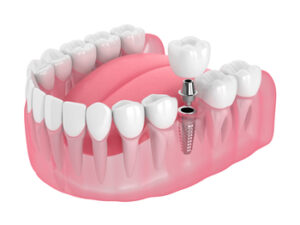
Currency Exchange Advantage
One of the key drivers of dental tourism in Turkey is the favourable currency exchange rates. Visitors from countries with stronger currencies, such as the US dollar, Euro, or British pound, find their money stretches further in Turkey. This creates the perception of substantial cost savings, making dental procedures, including dental implants, appear more affordable than in their home countries.
Overmarketing Propaganda
In addition to currency exchange advantages, Turkey’s dental tourism industry thrives on overmarketing propaganda that falsely promotes high-quality dental implants at a fraction of the cost. Dental clinics in Turkey often employ aggressive marketing tactics, including flashy advertisements and enticing promotions, to lure prospective patients. These marketing efforts create an illusion of excellence and affordability, enticing individuals to seek dental treatments in Turkey without fully understanding the potential risks.
While the allure of cheap dental implants in Turkey may initially seem enticing, it’s essential for individuals to critically evaluate the true quality and safety standards offered by dental clinics in the country. The pursuit of affordability should never come at the expense of compromising the quality of dental care and risking one’s oral health.
Factors Affecting The Cost Of The Dental Implant Procedure Worldwide
While the initial attraction to dental tourism may stem from the promise of cost savings, it’s crucial to understand the factors that influence dental implants’ cost, regardless of the location. Dental implant costs can vary significantly based on several key factors:
Type Of Dental Implant
Dental implants vary in price depending on their kind. Endosteal implants are the most widely used and cost-effective substitute, as they are surgically placed into the mandible. Subperiosteal implants, however, are placed above the jawbone, whereas zygomatic implants—which are utilised when there is a substantial loss of bone in the upper jaw—may cost more because of their sophisticated design.
Number Of Implants
The number of implants required for a dental restoration plays a significant role in determining the overall cost. Full-mouth dental implants or multiple implant placements naturally incur higher costs than single-tooth implants or partial restorations.
Additional Procedures
In many cases, patients may require additional procedures before or during the implant placement process. These procedures add to the overall cost of treatment.
Quality Of Materials And Technology
The quality of materials used in dental implant procedures and the level of technological sophistication employed by the dental clinic can impact the cost. Premium materials and advanced technologies may command higher fees, but they often result in superior outcomes and long-term success.
Location And Clinic Reputation
The geographical location of the dental clinic, as well as its reputation and accreditation, can also influence the cost of dental implants. Clinics in prime areas or with renowned reputations for excellence may charge higher fees for their services.
Dental Clinic Overheads
The operational expenses of the dental clinic, including rent, utilities, staff salaries, and equipment maintenance, contribute to the cost of dental implant procedures. Clinics with higher overheads may pass these expenses to patients through higher treatment fees.
Implant Brand And Manufacturer
The brand and manufacturer of the dental implant components can impact the cost of treatment. Established implant brands with a reputation for quality and reliability may command higher prices than generic or lesser-known alternatives. Patients may have the option to choose between different implant brands, with varying costs associated with each.
Dentist’s Expertise And Experience
The expertise and experience of the dentist performing the implant procedure can influence the cost of treatment. Dentists with advanced training, advanced skills, or extensive experience in implant dentistry may charge higher fees for their services. Patients may prioritise selecting a qualified and experienced dentist, even if it means paying a higher fee for their expertise.
Pre- And Post-Operative Care
A thorough pre- and post-operative care plan is necessary for dental implant operations to be effective. The total cost of therapy should account for the price of diagnostic tests, consultations, and follow-up sessions. Comprehensive pre- and post-operative care clinics may charge extra for these services or be included in treatment packages.
Anaesthesia And Sedation
The type of anaesthesia or sedation administered during the implant procedure can impact the cost of treatment. General anaesthesia or intravenous sedation may incur higher fees compared to local anaesthesia. Patients should discuss their preferences and comfort levels with their dentist to determine the most appropriate anaesthesia option for their procedure.
It’s important for patients to consider these factors when evaluating the cost of dental implants and to prioritise quality, safety, and long-term success over immediate cost savings. While dental tourism may offer temporary financial advantages, the risks associated with receiving treatment in unfamiliar environments with potentially lower quality standards must be carefully weighed against the benefits.
Types Of Dental Implants And Their Impact On Treatment Cost
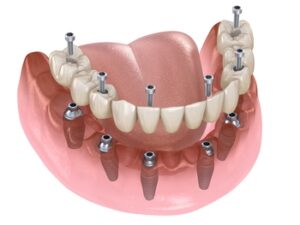
Endosteal Implants
Endosteal implants are the most frequently utilised type of dental implant. They are inserted surgically right into the mandible, giving dental prostheses, including crowns, bridges, and dentures, a strong base. Endosteal implants are typically made of biocompatible materials like titanium and offer high success rates. Due to their straightforward placement technique and widespread availability, endosteal implants are more affordable than alternative options.
Subperiosteal Implants
Patients who lack enough bone density or height to sustain standard endosteal implants are candidates for subperiosteal implants. These implants lie on the bone and behind the gum tissue rather than being placed into the jawbone. They are custom-made to fit the contours of the patient’s jawbone, providing stability and support for dental prosthetics. Subperiosteal implants are more complex to design and place, resulting in higher treatment costs than endosteal implants.
Zygomatic Implants
When severe bone loss occurs in the upper jaw, especially in the posterior area, zygomatic implants are used. Instead of anchoring into the jawbone, they are anchored into the zygomatic (cheek) bone, providing a secure foundation for dental prosthetics. Due to the nature of zygomatic implants and the expertise required to place them, treatment costs for zygomatic implants are typically higher than those for traditional endosteal implants.
Full-Mouth Dental Implants
Full-mouth dental implants are innovative solutions for patients requiring full-arch dental restorations. These systems involve the placement of four or six implants strategically positioned within the jawbone to support a fixed prosthesis, such as a denture or bridge. By utilising fewer implants than traditional full-arch restorations, full-mouth implants offer a more cost-effective solution for patients while providing excellent stability and functionality.
The type of dental implant selected for treatment can significantly impact the overall cost of the procedure. Patients should prioritise choosing an implant type that offers optimal long-term outcomes and meets their functional and aesthetic needs. Patients may make well-informed decisions regarding their implant treatment options and financial concerns by speaking with a knowledgeable dental expert.
Risks Of Getting Dental Implants In Turkey
While Turkey may offer enticing prospects for affordable dental implant procedures, patients must be aware of the potential risks of dental treatment abroad. Despite the allure of cost savings, the decision to undergo dental implant surgery in Turkey carries inherent risks that can compromise the overall quality and safety of the procedure. Here are some key risks to consider:
 Quality Control And Regulation
Quality Control And Regulation
Turkey’s dental tourism industry operates with varying degrees of regulation and oversight. While some clinics uphold high quality and safety standards, others may prioritise profit over patient care. The lack of stringent regulatory enforcement can result in disparities in treatment quality, sterilisation protocols, and adherence to best practices. Patients may find it challenging to assess the qualifications and credentials of dental practitioners and the overall safety standards of dental clinics in Turkey.
Inferior Materials And Equipment
Some dental clinics in Turkey may use inferior materials and outdated equipment to cut costs and maximise profits. Low-quality implant components, prosthetics, and sterilisation instruments can compromise dental implant procedures’ durability, biocompatibility, and safety. Patients may unknowingly receive subpar treatment with materials that do not meet international standards, increasing the risk of implant failure, infections, and long-term complications.
Lack Of Continuity Of Care
Dental tourism often involves travelling to a foreign country for treatment, which may result in a lack of continuity of care. Patients may encounter challenges coordinating pre- and post-operative appointments, follow-up care, and emergency services, especially if they return to their home country shortly after undergoing dental implant surgery in Turkey. The absence of ongoing support from the treating dentist can impede the monitoring of healing progress, early detection of complications, and timely intervention in adverse events.
Communication Barriers
Language barriers and cultural differences can pose major challenges for international patients seeking dental treatment in Turkey. Miscommunications between patients and dental practitioners may lead to misunderstandings regarding treatment expectations, informed consent, and post-operative care instructions. Patients may feel isolated or overwhelmed when navigating unfamiliar healthcare systems and seeking assistance in the event of complications or emergencies.
Limited Recourse For Redress
If patients are dissatisfied, have complications, or experience adverse outcomes following dental implant surgery in Turkey, they may encounter obstacles in seeking recourse for redress. Legal, logistical, and financial barriers may hinder the pursuit of compensation, refunds, or corrective treatments, particularly for international patients unfamiliar with local laws and regulations or facing challenges in pursuing legal action across borders.
While affordable dental implants in Turkey may initially seem appealing, patients must carefully weigh the potential risks against the perceived benefits. Prioritising safety, quality, and long-term outcomes should precede short-term cost considerations.
Why Australia Is The Right Destination For Dental Implant Patients
Regarding dental implant procedures, prioritising safety, quality, and peace of mind is paramount. Australia is ideal for patients seeking high-quality dental implant services without the associated risks and complications often encountered in dental tourism destinations like Turkey. Here are several compelling reasons why Australia is the preferred choice for dental implant patients:
Rigorous Regulatory Standards
Australia boasts stringent regulatory standards governing dentistry, ensuring that dental experts adhere to the highest levels of professionalism, ethics, and patient safety. Dental clinics in Australia are subject to rigorous accreditation processes and ongoing oversight by regulatory bodies, such as the Dental Board of Australia and the Australian Health Practitioner Regulation Agency (AHPRA). Patients can trust that dental implant procedures performed in Australia meet stringent quality standards and adhere to best practices in infection control, sterilisation, and patient care.
Qualified And Experienced Professionals
Australian dental professionals undergo extensive education, training, and licencing requirements to practise dentistry. They must hold recognised qualifications from accredited institutions and maintain continuous professional development to stay abreast of dental technology and technique advancements. Patients can have confidence in the expertise and experience of Australian dentists who are experienced in implant dentistry and possess the skills necessary to deliver exceptional outcomes with a focus on patient comfort, safety, and satisfaction.
Advanced Dental Technology And Innovations
Australian dental clinics leverage state-of-the-art technology, advanced diagnostic tools, and innovative treatment modalities to deliver superior dental implant services. From digital imaging and computer-guided implant placement to intraoral scanners and 3D printing technology, Australian dental practices invest in cutting-edge equipment and techniques to enhance treatment precision, efficiency, and patient experience. Patients benefit from the latest advancements in implant dentistry, ensuring optimal outcomes and the long-term success of their dental implant procedures.
Comprehensive Aftercare Support
Australian dental clinics prioritise comprehensive aftercare support to ensure dental implant treatments’ ongoing success and longevity. Patients receive holistic care from personalised treatment plans and thorough pre-operative assessments to post-operative monitoring and maintenance protocols throughout their implant journey. Dental professionals in Australia offer guidance, education, and resources to empower patients to maintain optimal oral health and maximise the lifespan of their dental implants, promoting long-term oral function, aesthetics, and well-being.
Transparent Pricing And Financial Options
While dental implant procedures in Australia may have a higher upfront cost than overseas alternatives, patients benefit from transparent pricing structures and clear communication regarding treatment fees and associated expenses. To assist customers in managing the expense of dental implant procedures without sacrificing quality or safety, Australian dental clinics offer comprehensive treatment estimates, payment plans, and financing alternatives. With the assurance of reasonable and open pricing policies, patients may make well-informed decisions regarding their dental treatment and financial considerations.
Australia offers dental implant patients a combination of rigorous regulatory standards, qualified professionals, advanced technology, comprehensive aftercare support, and transparent pricing, making it the preferred destination for those seeking high-quality dental implant services. By choosing Australia for their dental implant treatments, patients can enjoy peace of mind knowing that their oral health and well-being are in trusted hands, free from the risks and uncertainties associated with dental tourism destinations.
Complications Arising From Dental Implant Surgeries With Low-Quality Materials
Dental implant surgery is a big investment in oral health and well-being. On the other hand, choosing to have treatments carried out using subpar materials might result in several issues and unfavourable effects that compromise the effectiveness and durability of dental implants. Here are several complications commonly associated with dental implant surgeries conducted using subpar materials:
Implant Failure
Dental implant failure is one of the most significant risks of using low-quality materials in dental implant surgeries. Inferior implant components may lack the structural integrity, biocompatibility, and surface characteristics necessary for successful osseointegration—the process during which the dental implant fuses with the surrounding bone. Implant failure can result from poor implant-bone integration, mechanical instability, or biological factors, leading to the need for implant removal, revision surgery, and additional expenses.
Infection And Inflammation
Low-quality materials and inadequate sterilisation protocols increase the risk of post-operative infections and inflammatory reactions following dental implant surgery. Contaminated implant surfaces, compromised tissue healing, and bacterial colonisation can contribute to peri-implantitis, an inflammatory condition characterised by gum inflammation, bone loss, and implant instability. Untreated infections can escalate into systemic health issues and compromise the overall success of dental implant treatments.
Bone Resorption
Implants made from inferior materials may fail to stimulate sufficient bone growth and remodelling, resulting in bone resorption or loss around the implant site. Poor osseointegration, implant micromotion, and chemical reactions with surrounding tissues can contribute to bone resorption, compromising the stability and longevity of dental implants. To restore bone volume and support, progressive bone loss may necessitate corrective interventions, such as bone grafting or implant removal.
Soft Tissue Complications
Low-quality implant materials and poorly designed implant surfaces can irritate and damage the surrounding soft tissues, leading to complications such as mucositis, peri-implant mucositis, and soft tissue recession. Inadequate soft tissue adaptation, improper implant placement, and biomechanical factors can contribute to soft tissue complications, compromising the aesthetics, function, and comfort of dental implant restorations. Addressing soft tissue issues may require adjunctive treatments like gingival grafting or tissue regeneration procedures.
Prosthetic Complications
Using low-quality implant materials can compromise the structural integrity and longevity of dental prosthetics supported by implants, such as crowns, bridges, or dentures. Poorly fitting prosthetic components, material wear and degradation, and mechanical failures can result in prosthetic complications, including fracture, loosening, and functional impairment. Replacing or repairing damaged prosthetic components may entail additional expenses and inconvenience for patients.
Opting for dental implant surgeries performed with low-quality materials poses significant risks and complications that can compromise dental implant treatments’ success, safety, and longevity. By investing in high-quality dental implant procedures, patients can minimise the likelihood of complications and enjoy durable, functional, and aesthetically pleasing outcomes that enhance their oral health and overall well-being.
What To Expect When Getting Dental Implant Treatments In Australia
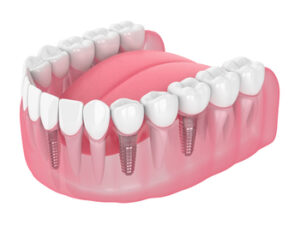
Initial Consultation And Treatment Planning
The process starts with a first consultation with a licenced dentist with implant dentistry experience. In this appointment, the dentist comprehensively evaluates the patient’s oral health, including a clinical examination, dental history, and diagnostic imaging, such as CT or X-rays. After hearing the patient’s worries, the dentist talks with them about their desired course of care and creates a customised treatment plan that considers their particular requirements, preferences, and financial situation.
Pre-Operative Preparation
Before proceeding with dental implant surgery, patients may undergo pre-operative preparations, such as dental cleanings, periodontal therapy, or extractions, to optimise oral health and ensure a stable foundation for implant placement. The dental team provides detailed instructions on pre-operative care, including dietary restrictions, medication management, and lifestyle modifications, to promote successful treatment outcomes and minimise post-operative complications.
Dental Implant Surgery
Usually, conscious sedation or local anaesthesia is used during dental implant surgery to ensure the patient’s comfort and relaxation. The dentist skilfully inserts the implants into the jawbone at precise angles and locations using cutting-edge surgical procedures to provide the best possible stability and support for the finished restorations. The number and placement of implants depend on the patient’s specific treatment plan and prosthetic requirements.
Healing And Osseointegration
Following implant placement, the healing process begins, during which osseointegration occurs—the biological bonding of the implants with the surrounding bone tissue. Patients are advised to diligently follow post-operative instructions, including oral hygiene protocols, dietary restrictions, and activity modifications, to facilitate healing and minimise the risk of complications. Regular follow-up appointments allow the dental team to monitor healing progress, assess implant stability, and promptly address any concerns or issues.
Prosthetic Restoration
Once osseointegration is achieved, the dental implants are ready to receive the final prosthetic restorations, such as crowns, bridges, or dentures. The dentist takes precise impressions and records of the implant sites to fabricate custom-made prosthetics that mimic natural teeth’s shape, size, and colour. The prosthetic components are meticulously crafted and adjusted to ensure proper fit, function, and aesthetics, restoring the patient’s smile and oral function to their full potential.
Long-Term Maintenance And Follow-Up
After dental implant treatment, patients receive comprehensive long-term maintenance and follow-up care to preserve their implants’ health and integrity. Maintaining good oral health, identifying possible problems early, and monitoring implant stability all depend on routine dental check-ups, expert cleanings, and frequent radiographic evaluations. Patients are also educated on nutrition, lifestyle, and oral hygiene practices to improve their general health and the longevity of their dental implants.
Undergoing dental implant treatments in Australia involves a collaborative and patient-centric approach, emphasising personalised care, advanced techniques, and long-term success. Patients can expect thorough assessments, precise surgical interventions, meticulous prosthetic restorations, and ongoing support from a team of skilled dental professionals dedicated to achieving optimal outcomes and exceeding patient expectations. Patients can journey towards restored oral health, renewed confidence, and a brighter smile that lasts a lifetime by choosing Australia for their dental implant treatments.
Additional Procedures In Dental Implant Treatments
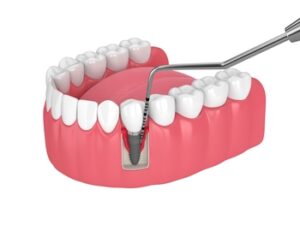
Bone Grafting
Bone grafting is often necessary to augment insufficient bone volume or density in the jawbone, providing a solid foundation for implant placement. During this procedure, bone graft material—derived from the patient’s bone tissue, donor sources, or synthetic substitutes—is transplanted into the deficient area to stimulate new bone formation and regeneration. Bone grafting enhances implant stability, reduces the risk of implant failure, and facilitates optimal osseointegration, particularly in cases of severe bone resorption or atrophic jaws.
Sinus Lift Surgery
Patients whose sinus expansion has left them with insufficient bone height in the posterior maxilla (upper jaw) may benefit from sinus lift surgery, sometimes referred to as sinus augmentation or sinus floor elevation. During this procedure, the sinus membrane is elevated, and bone graft material is placed in the resulting space between the sinus floor and the alveolar ridge. This increases bone volume in the posterior maxilla, creating a suitable environment for implant placement and ensuring sufficient bone support and stability for dental prosthetics.
Ridge Augmentation
Ridge augmentation also referred to as ridge preservation or ridge expansion, is performed to enhance the width or height of the alveolar ridge—the bony ridge that supports the teeth—in preparation for dental implant placement. This procedure involves adding bone graft material to deficient areas of the alveolar ridge to restore its natural contours and dimensions. Ridge augmentation improves implant placement accuracy, enhances aesthetic outcomes, and minimises the risk of implant-related complications, such as implant exposure or soft tissue recession.
Soft Tissue Grafting
Soft tissue grafting, or gingival grafting, may be recommended to address inadequate soft tissue volume or thickness around dental implant sites. This procedure involves transplanting donor tissue from the patient’s palate or adjacent oral tissues to augment the keratinised gingiva—the protective tissue surrounding the implants. Soft tissue grafting improves peri-implant tissue aesthetics, enhances implant stability, and reduces the risk of mucosal complications such as recession or peri-implantitis.
Extractions And Socket Preservation
Patients requiring dental implant treatment may have compromised natural teeth or residual roots that require extraction before implant placement. The extraction of non-restorable teeth or compromised roots is typically followed by socket preservation, a procedure aimed at maintaining the volume and integrity of the extraction site. Socket preservation involves filling the extraction socket with bone graft material to prevent bone resorption and facilitate optimal healing, ensuring a stable foundation for future implant placement.
Orthodontic Treatment
In some cases, orthodontic treatments may be recommended as part of the comprehensive treatment plan for dental implant patients. Orthodontic interventions, such as tooth alignment, space management, or occlusal adjustments, may be necessary to optimise the alignment, spacing, and occlusion of adjacent teeth and create an ideal environment for implant placement. Orthodontic treatment enhances dental implant restorations’ aesthetic and functional outcomes and promotes long-term oral health and stability.
Additional procedures are crucial in supporting the overall success and longevity of dental implant treatments by addressing underlying anatomical deficiencies, optimising implant placement accuracy, and ensuring harmonious integration with surrounding oral structures. Patients undergoing dental implant therapy should consult with their dental expert to determine the need for supplementary interventions and develop a comprehensive treatment plan tailored to their needs and treatment goals.
How To Afford Your Dental Implant Treatments In Australia
While dental implant treatments in Australia may come with a higher upfront cost than overseas alternatives, several strategies and resources are available to help patients afford these life-changing procedures. Here are some options to consider when budgeting for dental implant treatments in Australia:
Health Insurance Coverage
Explore your health insurance policy to determine if it covers dental implant procedures. Some private health insurance plans offer partial coverage for dental implants, particularly if the treatment is deemed medically necessary. Review your policy’s coverage limits, waiting periods, and any exclusions related to dental implants to understand your level of financial protection.
Flexible Payment Plans
Many dental clinics in Australia offer flexible payment plans and financing options to help patients manage the overall cost of dental implant treatments. These payment arrangements allow patients to spread the cost of treatment over time through affordable monthly instalments, reducing the financial burden of upfront expenses. Enquire about available payment plans and financing terms with your dental professional to find a solution that fits your budget.
Tax Deductions And Rebates
Some dental expenses, including dental implant treatments, may be eligible for tax deductions or rebates under Australia’s tax laws. Patients who incur out-of-pocket medical expenses exceeding a certain threshold may be entitled to claim a tax offset for eligible dental costs. Keep detailed records of your dental expenses and consult a tax professional to determine your eligibility for tax deductions or rebates.
Government Assistance Programmes
Depending on your circumstances, you may qualify for government assistance programmes or subsidies to help cover the cost of dental implant treatments. Individuals facing financial hardship, disability, or other challenging circumstances may be eligible for financial assistance through government-funded schemes or community organisations. Explore available support services and eligibility criteria in your state or territory to access additional financial resources.
Flexible Spending Accounts (FSAs) And Health Savings Accounts (HSAs)
If your company offers a Flexible Spending Account (FSA) or Health Savings Account (HSA), you may use pre-tax money to cover qualified medical costs, such as dental implants. Before taxes, contributions to FSAs and HSAs are withheld from your paycheck, lowering your taxable income and saving you money on out-of-pocket medical expenses. Contact your benefits administrator to determine if dental implants qualify as qualifying costs under your FSA or HSA plan.
Affording dental implant treatments in Australia may require careful planning and exploration of various financial options and resources. By leveraging health insurance coverage, flexible payment plans, tax deductions, government assistance programmes, FSAs, and HSAs, patients can make dental implant treatments more accessible and affordable while prioritising their oral health and overall well-being. Consult with your dental expert and financial advisors to develop a personalised financial strategy that aligns with your budget and treatment needs.
Frequently Asked Questions
 Are dental implants painful?
Are dental implants painful?
While some discomfort is expected during and after the treatment, a local anaesthetic is usually used to decrease pain during dental implant surgery. Patients may have Mild discomfort and swelling, but these side effects can be controlled with prescription medicine and good dental hygiene.
How long do dental implants last?
Dental implants have an extended lifespan with adequate maintenance. Regular dental examinations, proper oral hygiene, and abstaining from bad habits like smoking may help implants last much longer.
Is dental implant surgery safe?
When performed by qualified dental professionals in a reputable clinic, dental implant surgery is considered safe and effective. However, patients should be aware of any surgical procedure’s inherent risks and potential complications.
Can dental implants be done in a single day?
While same-day dental implant procedures are possible in certain cases, they typically involve immediate implant placement following tooth extraction. Complex cases or additional procedures may require multiple appointments for a complete implant treatment.
How much do dental implants cost in Australia?
The cost of dental implants in Australia can vary depending on various factors, including the number of implants needed, additional procedures required, choice of materials, and the dental clinic’s geographical location. Patients should consult their dentist for a personalised treatment plan and cost estimate.
Does insurance cover dental implants?
Certain private health insurance policies may partially cover dental implant operations, especially if they are judged medically essential. Patients should study their insurance policies to understand their level of coverage and any out-of-pocket costs.
How do I know if I’m a candidate for dental implants?
Dental implant candidates should have healthy gums, a sufficient amount of bone density in the jawbone, and good oral health. Prior to implant surgery, patients with untreated gum disease, inadequate bone volume, or other medical issues could need further assessments or treatments. A thorough dental check-up and a consultation with a licenced dentist are necessary to assess a patient’s eligibility for dental implants.
What is the recovery process like after dental implant surgery?
The recovery process after dental implant surgery typically involves some degree of discomfort, swelling, and temporary dietary restrictions. Patients are advised to follow post-operative care instructions provided by their dentist, including proper oral hygiene practices, pain management techniques, and dietary guidelines. Most patients can return to normal activities within a few days to a week after surgery, but full healing and integration of the implants may take several months.
Can I finance my dental implant treatment?
Many dental clinics in Australia offer flexible payment plans or financing options to help patients spread out the cost of treatment over time. Patients can enquire about available payment arrangements and financing terms to make dental implant treatments more affordable and accessible.
What are the advantages of dental implants over other tooth replacement options?
Dental implants offer several advantages over traditional tooth replacement options, including improved stability, durability, and aesthetics. Unlike dentures or dental bridges, implants stimulate bone growth and integrate with the jawbone, providing long-term support and preventing bone loss. Additionally, dental implants function and feel like natural teeth, allowing patients to eat, speak, and smile confidently.
Restoring Your Amazing Smile While Minimising Risks
While the allure of cheap dental implant costs in Turkey may seem appealing, patients must prioritise safety, quality, and long-term outcomes when considering dental implant treatment. Australia is a preferred destination for those seeking high-quality dental implant procedures backed by stringent regulatory standards, advanced technology, and comprehensive aftercare support. By understanding the true factors affecting dental implant costs and the risks associated with low-quality treatments, you can make informed decisions to safeguard your oral health and well-being and restore your brilliant smile.
Contact Digital Dental Surgery Sydney, Sydney NSW 2000, at (02) 8294 5812 to get your damaged or missing teeth replaced through a high-quality dental implant process.
Note: Any surgical or invasive procedure carries risks. Before proceeding, you should seek a second opinion from an appropriately qualified health practitioner.
Sources
“ADA Policies – Elective Overseas Dental Treatment.” Australian Dental Association, ada.org.au/policy-statement-2-2-6-elective-overseas-dental-treatment.
Adams, Lina. “Beware of Language Barriers, Dental Tourists Warned – Dentistry.” Dentistry.co.uk, 30 Aug. 2023, dentistry.co.uk/2023/08/24/beware-of-language-barriers-dental-tourists-warned.
Bhatiya, Rehan. “Understanding the Factors Influencing Dental Implants Cost.” Medium, 25 Aug. 2023, medium.com/@rehanbhatiya/understanding-the-factors-influencing-dental-implants-cost-79de6517a8da.
Bone Grafts | Options and Cost | Bupa Dental Care. www.bupa.co.uk/dental/dental-care/treatments/dental-implants/supporting-treatments/bone-grafts.
Bsdh, Laurie Magallan Rdh. “Dental Tourism: Making Patients Aware That the “Bargain” Could Be a Big Mistake.” Today’s RDH, 16 June 2023, www.todaysrdh.com/dental-tourism-making-patients-aware-that-the-bargain-could-be-a-big-mistake.
Can I Use My HSA or FSA to Pay for Dental Services? blog.healthequity.com/hsa-and-fsa-for-dental-care.
Colgate. “Sinus Lift Surgery: Answering Common Questions.” Colgate, 11 Mar. 2022, www.colgate.com/en-us/oral-health/implants/sinus-lift.
Dental Implant Surgery – Mayo Clinic. 29 Jan. 2019, www.mayoclinic.org/tests-procedures/dental-implant-surgery/about/pac-20384622.
Dental Tribune International. “DT News – International – Risks of Dental Tourism …” Dental Tribune International, 13 July 2017, www.dental-tribune.com/news/risks-of-dental-tourism-highlighted-by-ada.
Dutta, Shubha Ranjan, et al. “Risks and Complications Associated With Dental Implant Failure: Critical Update.” National Journal of Maxillofacial Surgery, vol. 11, no. 1, Jan. 2020, p. 14. https://doi.org/10.4103/njms.njms_75_16.
Lamb, Sandra. “When Dental Implants Go Wrong.” AARP, 13 Nov. 2020, www.aarp.org/health/conditions-treatments/info-2020/dental-implants-danger.html.
“Rehabilitation of a Patient With a Severely Resorbed Maxilla Using Zygomatic Dental Implants and a Novel Prosthetic Design for a Full-arch Zirconia Rehabilitation.” Implant Practice US – Dental Publication, implantpracticeus.com/rehabilitation-of-a-patient-with-a-severely-resorbed-maxilla-using-zygomatic-dental-implants-and-a-novel-prosthetic-design-for-a-full-arch-zirconia-rehabilitation.
Robinson, Kara Mayer. “Types of Dental Implants.” WebMD, 2 May 2022, www.webmd.com/oral-health/types-dental-implants.
Steinheimer, Lauren. “5 Ways to Get Low-Cost Dental Implants.” NewMouth, 9 Feb. 2024, www.newmouth.com/blog/low-cost-dental-implants.
Tanner, A. C. R., et al. “Dental Implant Infections.” Clinical Infectious Diseases, vol. 25, no. s2, Sept. 1997, pp. S213–17. https://doi.org/10.1086/516243.
Zirconia or Titanium Dental Implants | Materials, Properties and Strengths of Tooth Implants. www.click4teeth.com/feature-articles/what-materials-dental-implants.


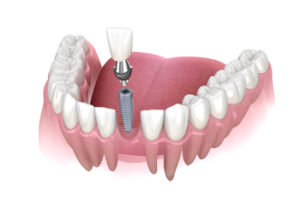 Quality Control And Regulation
Quality Control And Regulation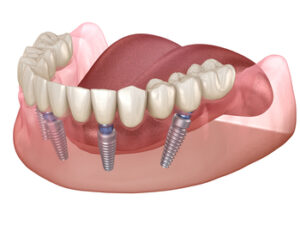 Are dental implants painful?
Are dental implants painful?



